The chances are that you already have several favorites applications you can’t do without. But, did you know that some apps have also been created to help make you happier? Software developers like those at BairesDev are continuously creating apps to make your life better, safer, and easier.
Many things in life can contribute to feeling emotionally off-balance. When this happens, a session with a therapist or talk with a good friend can help you through challenging times. But what about situations when you don’t have access to those people? The following apps can help you calm down, look at things in a new way, and even address serious concerns like depression.
Contents
1. Happify
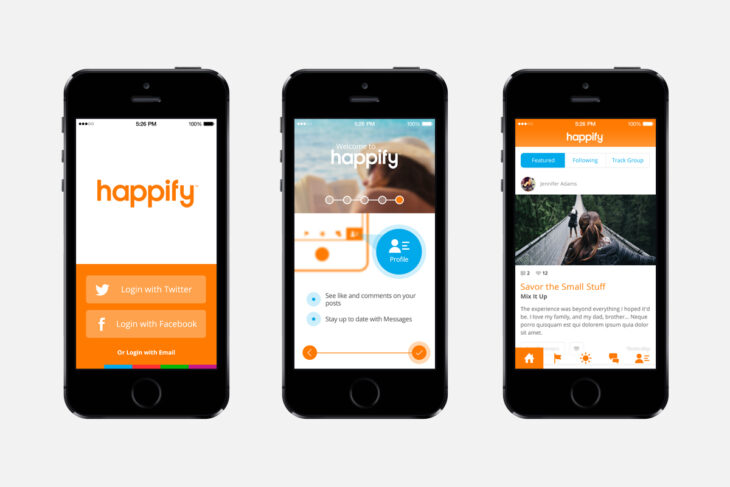
Source: pastoralinstitute
Happify is based on the view that small trials can add up to significant emotional challenges. Use it to neutralize stress and worry by training your brain to overcome negative thoughts. The app provides science-based games and activities to help you reach emotional goals, such as self-confidence, resilience, and effective stress management. Happify also features guided meditations to help you reduce anxiety. You can track your progress with the ultimate goal of changing habits for good.
2. Headspace
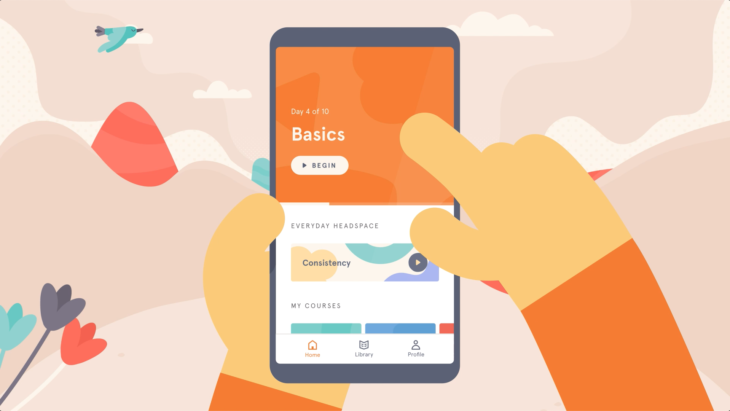
Source: headspace
One of the most popular Health and Fitness apps, Headspace is a meditation app that helps you reduce stress and increase mindfulness. Its features include guided meditations and videos on topics like physical health, personal growth, stress management, happiness, better sleep, and anxiety relief. It includes a basics course for those who are new to meditation. You can track your progress to stay motivated.
3. Sanvello
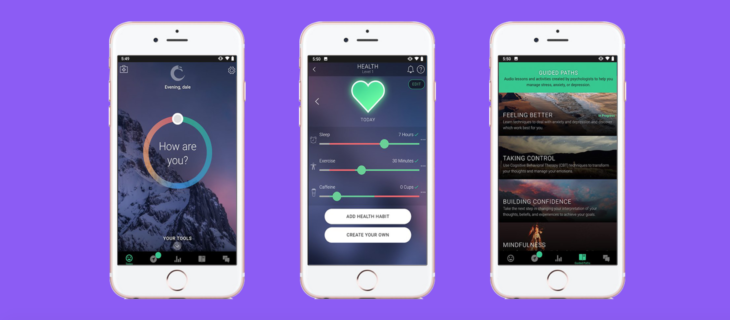
Source: stresspedia
While no electronic tool can replace the skills of a caring therapist, Sanvello provides activities that mimic cognitive-behavioral therapy (CBT), which is used to treat stress, anxiety, and depression. The big difference is you don’t have to make an appointment or go anywhere if you need help.
The app also offers meditations to help you relax, visualize, or breathe more deeply, and guided journeys for specific uses such as feeling better, taking control, or building confidence. Try the community section to get support from peers struggling with the same issues. Use the habit tracker to see your progress with things like sleep, exercise, and eating.
4. Youper
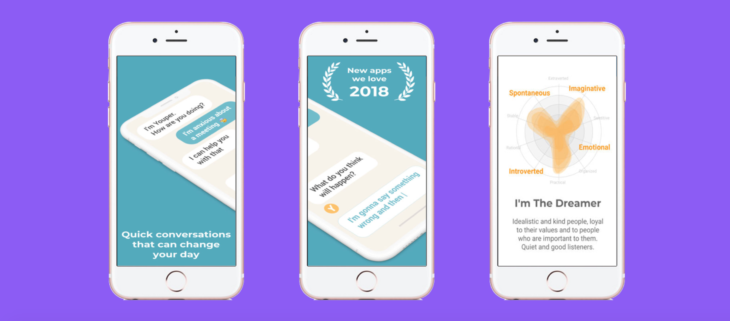
Source: stresspedia
If you suffer from depression, consider trying the Youper emotional health assistant to help you understand your emotions. The app uses a variety of tools, including AI-based conversations, a journal, a mood tracker, a place to record insights on mental health issues, and meditations for when you’re feeling overwhelmed or anxious.
Youper also includes personality tests to help you better understand your emotional style and a tracking feature so you can see improvements over time.
5. Calm
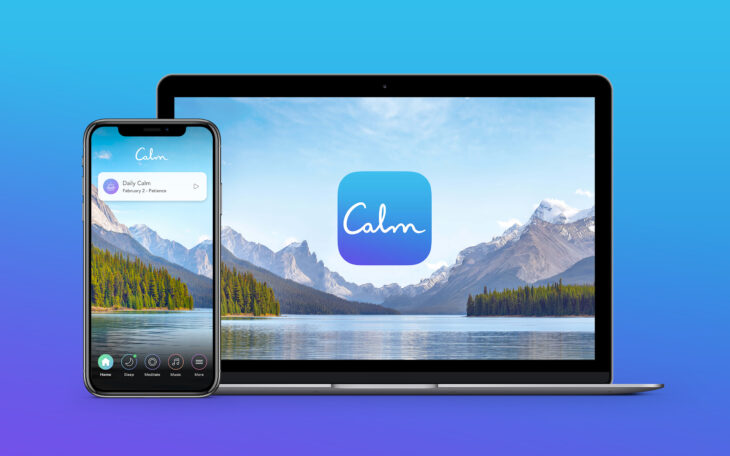
Source: usatoday
Experiencing anxiety? Calm is recommended by top psychologists, therapists, and mental health experts. The app can help with relaxation, meditation, and sleep exercises, stories, sounds, and music. You can choose the level (beginner to advanced) and the length of the session based on how much time you have. The app releases a new 10-minute Daily Calm program each day, so you always get fresh ways to unwind.
Additional features include classes taught by world-renowned experts and soothing nature sounds that you can use while falling asleep or with your existing meditation or yoga routine. The app also lets you track how much time you spend meditating each day and how many days in a row.
6. Sober Time
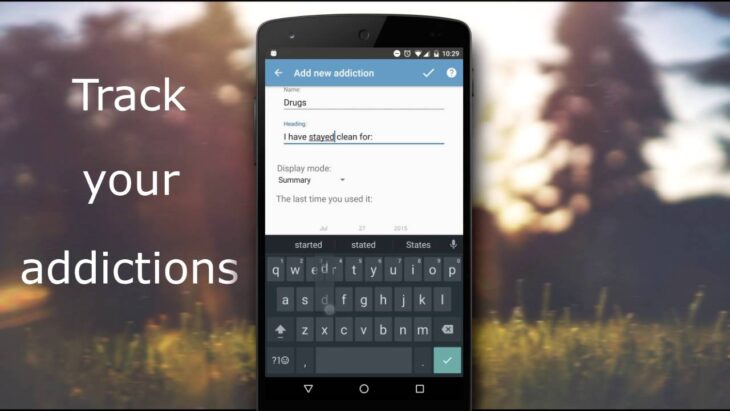
Source: youtube
If you struggle with addiction of any kind, this app can help by tracking your sobriety, giving you inspirational messages, and helping you set and achieve goals. If you experience a relapse, don’t get down on yourself. Instead, track what happened and add helpful notes so you can do better the next time.
The community features enable you to discuss addiction issues, milestones, and challenges with others who also have experiences to share.
7. BoosterBuddy
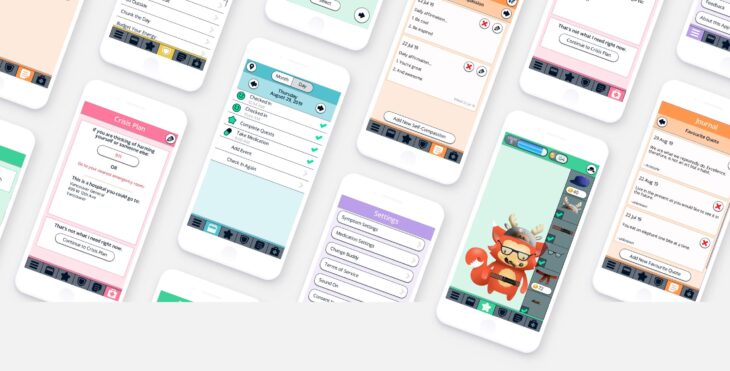
Source: robotsandpencils
Sometimes mental illness or even just stress can become so debilitating that you don’t even want to face your life. BoosterBuddy helps with a cute animal friend that encourages you to complete three small tasks to get out of bed and jump-start your day. When you finish them, you get coins that can be exchanged for rewards like fun clothing items for your friend.
The app also includes a glossary of coping skills, a journal to help you “talk” through your challenges, a medication alarm to keep you on track with mental health prescriptions, and a task manager to help you keep up your momentum throughout the day. You can build your personalized crisis plan, so you know exactly what to do if things take a turn for the worse.
8. Talkspace
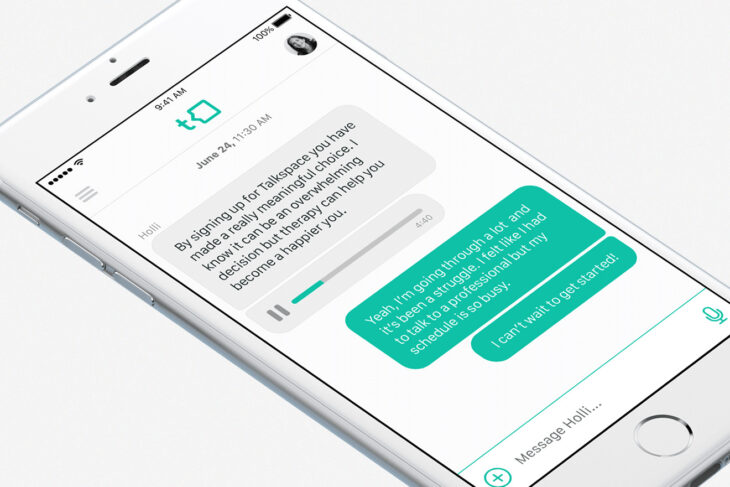
Source: talkspace
Sometimes apps like those mentioned above aren’t enough. Use this one to get connected with a licensed therapist. Talkspace offers several options for accessing one-on-one support from a real person. As with standard therapy, these services are simple, comfortable, and anonymous.
You can talk with a therapist via video chat or use the convenient messaging option if that’s easier for you or if you want to maintain confidentiality when you don’t have a private place to talk. You can even text with your therapist between sessions, giving you plenty of options for feeling better when you need it.
While the service can get expensive if you use it a lot, it’s more affordable than standard therapy for those without insurance coverage.
In Summary
The coronavirus pandemic has many people feeling worried or anxious, but many other things in life can contribute to feeling emotionally off-balance, including family issues and work stress. No matter the cause of your unease, the right tools can help get you back on track so you can get stronger each day and get on with your life.
